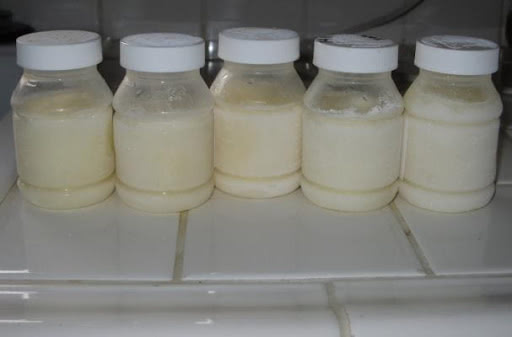
The importance of electrolytes really cannot be overstated. They are absolutely essential for the effective operations of our bodies. Electrolytes help us to maintain our muscles and nerves, and also help water move through our bodies. The most important electrolytes for our bodies include sodium, magnesium, potassium, calcium, chloride, phosphorus, and bicarbonate, and each plays its own unique role.
To help everyone understand just how important electrolytes are, this is everything you need to know about electrolytes.
What are Electrolytes?
Electrolytes are essential minerals that are vital for our bodies. Usually, when we talk about electrolytes, it is in relation to hydration. This is due to the fact that as our bodies sweat during exercise or everyday life, we lose electrolytes in our sweat. If these lost electrolytes are not replaced, it may cause issues with the functions of our body, resulting in various negative symptoms.
What are the Symptoms of Electrolyte Deficiency?
There are many different types of electrolyte minerals, and having a deficiency in any of them may result in one or more of a number of unique symptoms. For most people, however, the three main electrolytes that are worth paying attention to are potassium, magnesium, and sodium. A deficiency in these minerals may have a huge effect on our bodies. The following are some of the symptoms you may experience if your sodium, magnesium, or potassium levels get too low:
- Weakness in the muscles and joints
- Cramps and muscle twitching
- Sudden or chronic nausea
- Sleep problems
- Irritability
- Upset Stomach
- Cognitive difficulties
- Unexplained headaches
- Malaise or Fatigue
If you recognize any of these symptoms, you may have an electrolyte deficiency. If this is the case, you will need to replenish your body’s supply.
How Can You Get More Electrolytes?
The simplest way to get more electrolytes into your system is through the food and drink you consume. While this is usually easy enough with a balanced diet, there are many people with special or restrictive diets that may leave them lacking in certain minerals. In this case, taking an electrolyte supplement, such as Liquid IV may help bring your electrolytes up to a healthy level.
You can buy both individual supplements that will provide you with more of one specific electrolyte, or you can take a multi-supplement that will boost your levels of various electrolytes in one go. There are also special drinks with added electrolytes that are useful during exercise to replace those lost through sweat. When choosing a rehydrating electrolyte drink, check the label, as many are incredibly high in sugar. This sugar may give you an instant boost in energy but the added calories may offset the workout somewhat.
What Foods are Best for Adding Electrolytes to Your Diet?
Different foods contain different types of electrolytes, so in order to make sure that you are eating or drinking the right things, it is useful to look at each of the most common electrolytes one by one:
Sodium
Getting enough sodium is extremely important, but because of concerns about high blood pressure, far too many people have cut their sodium intake down far too much. While nobody should be eating mounds of salty junk food, adding a little salt to your home-cooked healthy meals not only makes them taste better but is also beneficial to your health.
While the current guidelines state that no more than 2.5g of salt should be consumed daily, there are proponents of sodium who believe that a daily intake of 3g to 6g is actually good for your health, particularly if you live an active life and need to replace the sodium lost through sweat. You may add coarse salt to your food or just increase your consumption of fresh, salty foods like fish or bone broth.
Magnesium
There are a huge number of people who have a magnesium deficiency. This may be due to a range of factors, including not consuming enough magnesium through food, or there not being enough magnesium in the soil for the food itself to absorb. The daily recommended intake of magnesium varies from country to country but the ideal amount is actually poorly researched. What is clear is that magnesium is very important for the central nervous system, digestion, and for soothing muscle aches and pains. If you are not getting enough magnesium in your diet then here are some of the foods that you should be eating:
- Spinach
- Artichoke
- Swiss chard
- Pumpkin seeds
- Chia seeds
- Mackerel
- Dark chocolate
- Hemp seeds
- Cacao
- Dark chocolate
- Almonds
- Avocado
- Pine nuts
Potassium
Potassium is a crucial electrolyte, but much like magnesium a shockingly large number of people have a potassium deficiency. This may be caused by a lack of potassium in people’s diets, as well as loss through urination and the intestines as a result of health conditions such as type 2 diabetes . A magnesium deficiency may also lead to a potassium deficiency, as magnesium facilitates potassium movement in and out of cells. A lack of magnesium also means that potassium is lost more easily.

When we think about potassium, we usually think of bananas, but in fact, there are many foods that are far better sources of potassium. These are the foods you need to be eating more of:
- Spinach
- Chard
- Beet greens
- Kale
- Fish
- Avocado
- Mushrooms
- Hemp seeds
- Broccoli
- Milk
- Almonds
- Tomatoes
You can see that these foods are very similar to magnesium-rich foods which shows the close relationship between the two minerals.
These days, many people are very focused on their health and are always trying out different exercise routines and fad diets. An active lifestyle and eating the right food is very important, but so is ensuring that we are getting enough electrolytes. The optimum electrolyte levels will keep all of your bodily functions running smoothly and help you to feel in tip-top shape. If you have an electrolyte deficiency, add some of the foods mentioned in this article to your diet or consider taking an electrolyte supplement. You may be amazed at the difference in how you feel!